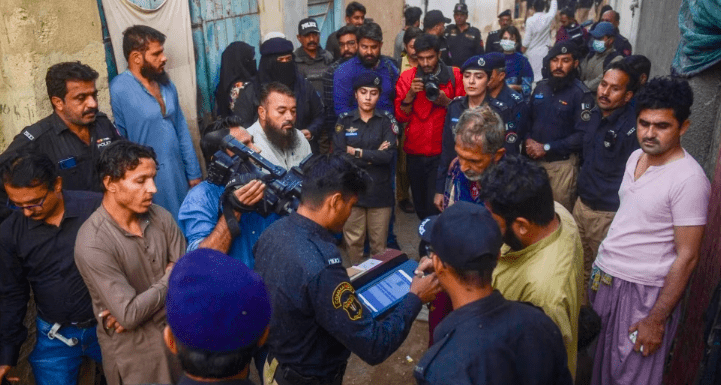
Pakistani police are facing accusations of unlawfully detaining, beating, extorting and sexually harassing Afghan refugees as part of a coercive campaign aimed at compelling them to return to their home country.
“Police and other officials have carried out mass detentions, seized property and livestock, and destroyed identity documents to expel thousands of Afghan refugees and asylum-seekers,” U.S.-based Human Rights Watch said in a statement on Wednesday.
“Afghan women told Human Rights Watch that Pakistani police had sometimes sexually harassed some Afghan women and girls and threatened them with sexual assault.”
Amnesty International has also reported on the trauma experienced by refugee women during police night raids.
“Many women are sleeping fully covered [in veils] because they are afraid of nighttime police raids by male police officers,” the U.K.-based rights organization said, quoting a female human rights lawyer.
Afghans in need of visa extensions in Pakistan are reportedly required to pay fines exceeding $800, while others have reported extortion.
“Afghan traders in Akbari Mandi in Lahore were searched for documentation by individuals in plain clothes claiming to be police officials who confiscated Rs. 500,000 [$1,750] in cash,” Amnesty International said.
United Nations human rights chief Volker Türk has expressed alarm at these reports and urged Islamabad to cease the deportation campaign.
“The local police conducted a night raid on our home,” a refugee told the U.N. human rights body. “They confiscated cash, jewelry, goats, sheep and other items from our home and took them.”
Cause for deportation
In October, Pakistani authorities announced that all foreign nationals in the country without valid visas and permits would be expelled within a short period.
While Pakistani officials cite Afghan nationals’ alleged involvement in crimes and security incidents, experts suggest that Islamabad is leveraging mass deportations to press the Afghan Taliban to meet its security demands.
Islamabad claims Pakistani Taliban insurgents have havens in Afghanistan from where they orchestrate terrorist attacks in Pakistan. The Afghan Taliban deny the charge.
“The mass deportation is primarily driven by considerations — in particular Pakistan’s loss of patience with the Taliban — that have little to do with any purported danger posed by migrants and refugees themselves,” U.S.-based International Crisis Group reported this month.
Aid agencies have warned that a mass deportation, particularly during the cold season, would exacerbate the already dire humanitarian situation in Afghanistan.
Nearly half of the 3 million Afghans living in Pakistan are registered by the United Nations as refugees. The U.N. has reported that more than 370,000 Afghans have repatriated from Pakistan over the past two months.
US hotline
About 25,000 Afghans who worked for U.S. and international programs in Afghanistan prior to the Taliban’s return to power in 2021 are in Pakistan with applications for resettlement in the United States pending.
Afghans seeking U.S. consular services must travel to a third country, primarily Pakistan, because the U.S. Embassy in Kabul remains closed, and Washington has refused to diplomatically recognize the Taliban regime.
This week, the U.S. Department of State announced an emergency hotline for Afghans who are on a pathway to U.S. immigration and resettlement but face deportation or detainment in Pakistan.
The Department of State did not respond to questions about the kind of services the hotline provides, but messages sent via WhatsApp to the hotline returned autoreplies asking for personal identification, date and place of detention for individuals concerned.
“Chats are answered in the order they are received,” a reply from the hotline said.
Human rights groups have called on the U.S. and other Western governments to expedite the resettlement process of Afghans from Pakistan to prevent their possible expulsion to Afghanistan, where they could face persecution.






